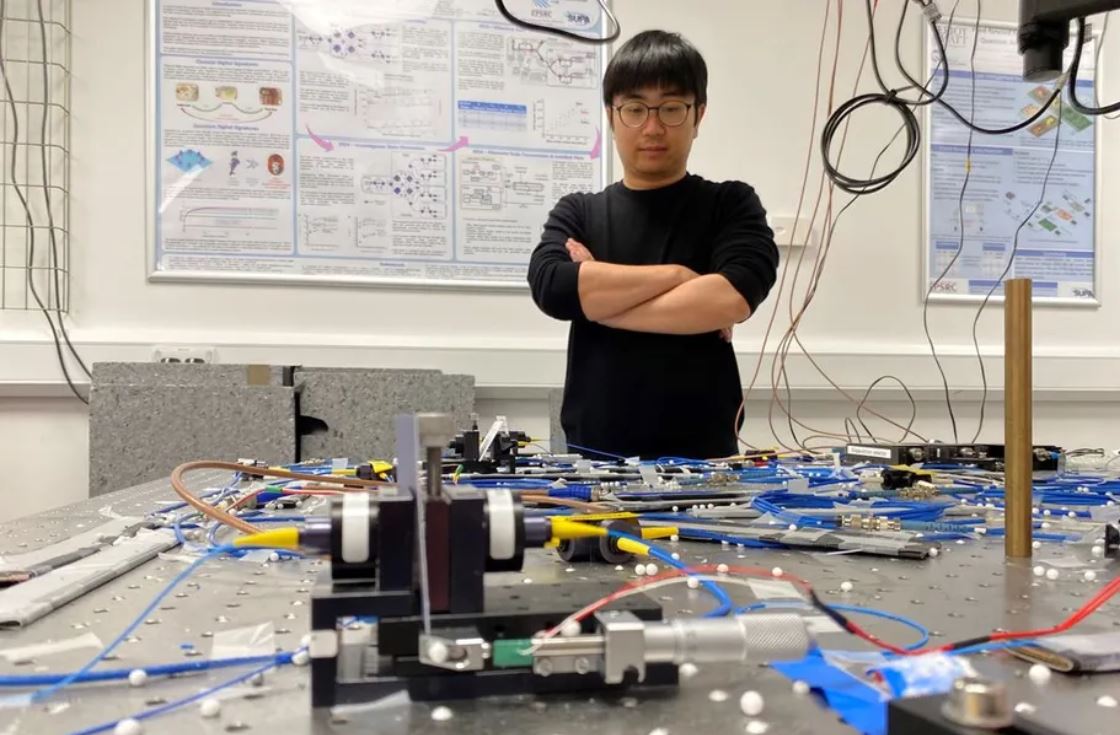Shedding light on the quantum technology supply chain
Published: 26 April 2022
Read More
Quantum technology has the potential to transform how we live; underpinning developments in areas spanning: healthcare, defence and security, intelligent transport systems, space and low orbit and climate change.
Dr Xin Yi from Heriot-Watt’s Institute of Photonics and Quantum Sciences has been awarded a £747,000 EPSRC Quantum Technology Career Development Fellowship to develop a new class of short-wave infrared (SWIR:1400 - 3000 nm wavelength) quantum detector that will form one of the critical building blocks of quantum technology.
The short-wave infrared is important due to its compatibility with long-distance optical fibre communications and long-range atmospheric transmission.
Much of quantum technology relies on being able to detect individual particles of light, or photons, using detectors known as single-photon avalanche diodes (SPADs).
Currently, SPAD performance is limited because the semiconductor materials they are made from, Indium Phosphide (InP), cannot do efficient single-photon detection like shorter wavelength silicon-based SPADs. Their performance is limited because of the inherent randomness in amplitude and timing of the amplified current signal.
To date, QuantIC research and technology have combined single photon sensing with nonlinear optics, computational methods, and a range of specialised detectors to advance SPAD performance in 3D imaging and higher atmospheric transmission. Such breakthroughs have led to high efficiency Ge on Si SPADs, new applications in automotive LIDAR, and improved imaging through fog, rain, snow, smoke and dust.
Over the next five years, Dr Yi will generate novel SWIR SPADs coupled with artificially engineered electron avalanche regions that improve the scope and performance of future quantum technology-based applications, and develop the supply chain and technology for its manufacture.
Dr Yi said: “This fellowship will position the UK as an international leader in short wave infrared SPAD design and manufacture, resulting in significant export potential."
“It will bridge the gaps between material science, physics and engineering, placing us at the forefront of areas like long-distance, secure quantum communications and emerging optical imaging technologies.”
“As well as working in Heriot-Watt’s state-of-the-art laboratories, I’m looking forward to collaborating with the University of Sheffield, and working on exploitation pathways with my industrial partners, Leonardo and Photon Force.
Dr Yi is one of 15 researchers across the UK to be awarded the Fellowship, and the only one in Scotland.
Dr Kedar Pandya, director of cross-council programmes at EPSRC said,
“Developing national capability in quantum technologies will ensure the UK remains at the forefront of the research that will ultimately transform for the better huge areas of our economy and society, from security and finance, to transport, communications, land use and healthcare.
“We are delighted to be able to support the efforts of our research community through these fellowships as they work to bring this remarkable future closer for us all.”
First published: 26 April 2022


